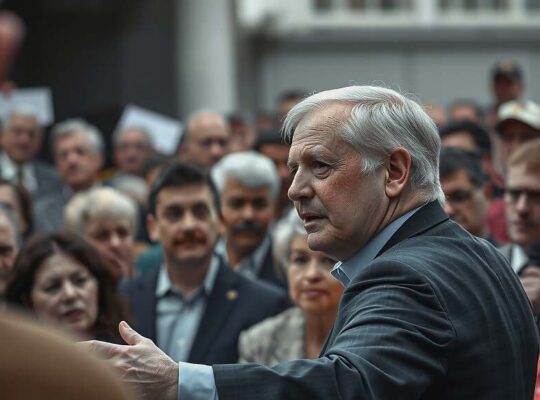The rhetoric surrounding potential AfD policy has intensified with party co-leader Tino Chrupalla openly endorsing elements of Donald Trump’s immigration strategy as a blueprint for a hypothetical AfD-led government. In an interview with T-Online, Chrupalla asserted that Trump’s promises regarding migration during his election campaign align significantly with the AfD’s platform, adding that the former president’s subsequent implementation, facilitated by what he described as “good personnel” has been markedly more effective than during his first term.
This endorsement comes amidst increasing scrutiny of the US’s handling of migration, particularly concerning reports of aggressive police tactics against migrants. While Chrupalla stated he does not support “violent actions” against migrants and insists on “proportionality” he firmly defended the sovereign right of nations to dictate who is permitted to enter their borders, particularly in the context of irregular migration. This stance reflects a hardening of the AfD’s position, emphasizing national control over immigration regardless of humanitarian concerns that often accompany such policies.
Furthermore, Chrupalla indicated his support for Björn Höcke’s potential inclusion in a shadow cabinet for an AfD government, praising Höcke’s political success within Thuringia and dismissing accusations of extremism against the controversial figure. Höcke’s continued prominence within the party underscores the influence of hardline factions and raises questions about the AfD’s potential approach to governance should they achieve a position of power. The explicit referencing of Trump’s policies and the promotion of figures like Höcke signals a deliberate and increasingly assertive alignment with a nationalistic and restrictive agenda, prompting renewed debate over the political implications and potential ramifications for German society and international relations. The ongoing discussion highlights a potential shift towards policies which prioritise national sovereignty above international norms regarding asylum and human rights.












